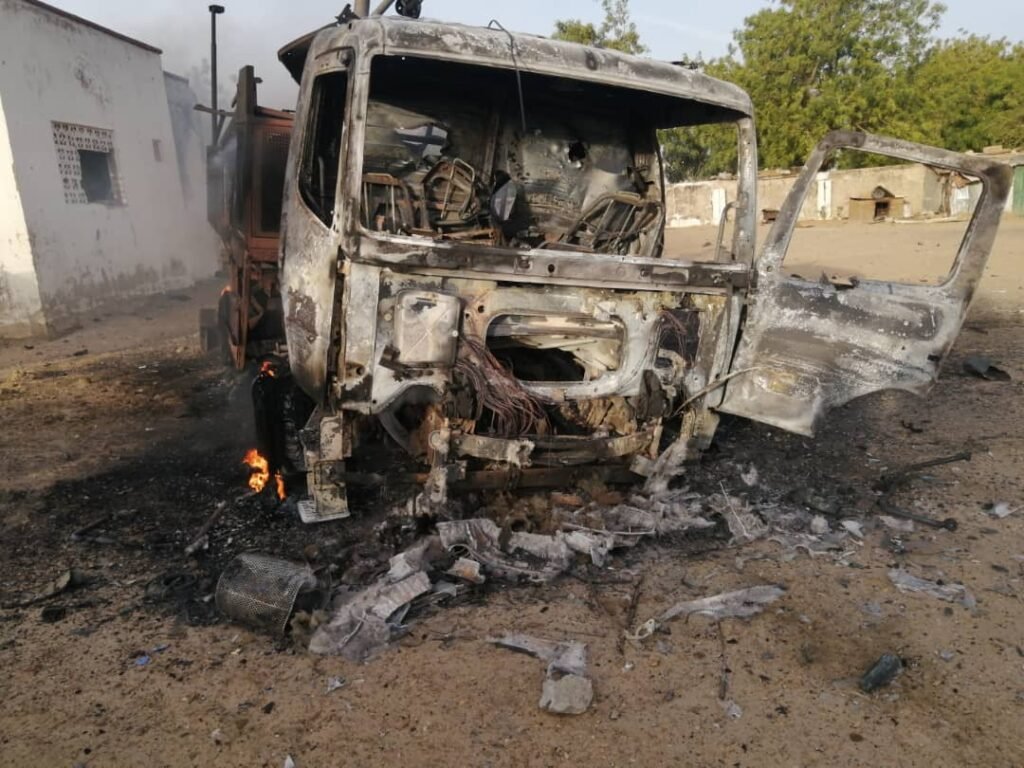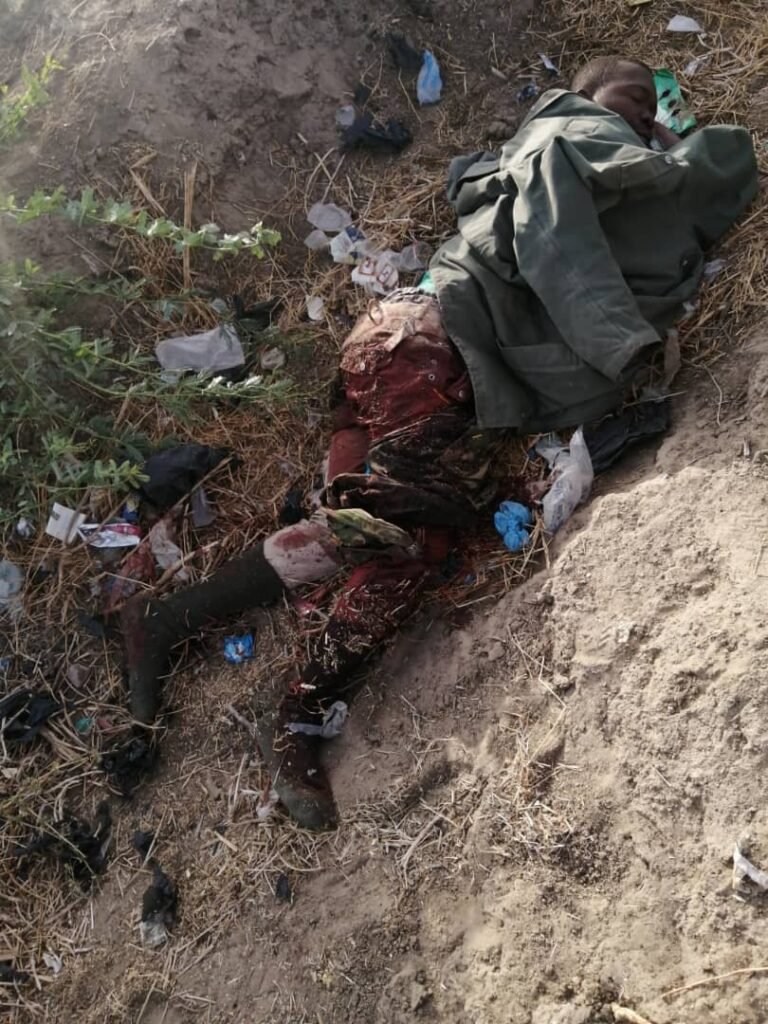YAOUNDÉ, Cameroon — In what is being described as one of the deadliest assaults on Cameroonian forces in recent times, at least 20 soldiers were killed in a meticulously coordinated overnight attack on military outposts in Wulgo, a northern border town near Nigeria. Military sources confirmed that the assailants, heavily armed and posing as herders and traders, struck at approximately 1:00 a.m. on Monday, unleashing chaos that lasted over two hours.
The attackers overran multiple military bases, torching buildings, destroying military vehicles, and looting heavy weapons before retreating. Three additional Cameroonian soldiers and one Nigerian soldier were critically wounded during the raid.

The Cameroonian government has attributed the carnage to Boko Haram. However, credible sources—including an intelligence contact in London who spoke to ABS News under strict anonymity—suggest a far more troubling reality: this may not be a mere terrorist attack by Boko Haram, but rather a manifestation of a deeper, more dangerous insurgency fueled by political discontent in the North.
“What is going on in the North is an insurgency disguised as Boko Haram under the sponsorship of the Northern elite,” the source said. “Northerners have since been disgruntled by neglect and marginalization. The attacks are a political statement—a stake for the upcoming transition. They believe Biya must go, and power should return to the North.”

This assertion paints a deeply disturbing picture: one of a state facing not only foreign terrorist threats but a homegrown insurgency emerging from decades of perceived political and economic marginalization. For years, frustrations have simmered among the northern population, particularly after the imprisonment of several northern elites and the region’s continued neglect. The discovery of a large cache of weapons and bomb-making materials in the North just four months ago—denied by the government and blamed again on Boko Haram—adds weight to the argument that the insurgency may be larger and more coordinated than Cameroon authorities admit.
The scale and strategy of this latest attack suggest more than a random act of terror—it reveals a deliberate, politically motivated assault designed to destabilize the region ahead of crucial elections. The North, historically sidelined in the country’s political equation, now appears to be pushing back, and violently so.

This leads to serious national questions: Is Cameroon facing a second war front, in addition to the unresolved Ambazonian conflict in the West? If this northern unrest is indeed an insurgency masked as Boko Haram, are we seeing the opening chapters of a civil uprising? Can Cameroon realistically withstand simultaneous conflicts in the North and South-West and still carry out a credible election and peaceful political transition?
As of this report, the government has yet to issue an official statement on the Wulgo attack. But the silence may be telling. Cameroon appears to be teetering—engulfed by flames on one side from Ambazonia, and now smelling the smoke of insurrection from the North.
In this fragile context, elections could very well become the spark that sets the entire structure ablaze. The question isn’t just whether Cameroon can handle these overlapping crises—but whether the state, as it is presently constituted, can survive them at all. A nation long held together by authoritarian stability may now be sitting atop a powder keg of power.

